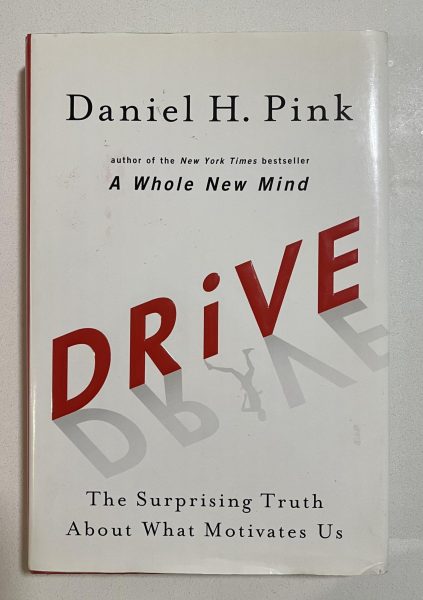As we approach the end of 2023, the season of New Year’s resolutions is upon us. Whether you are aiming to consume less sugar, to exercise more regularly, or to improve your sleep schedule, now is the time to set your 2024 goals.
Like many others, it is likely that you set a New Years’ resolution last January 2023. However, if you find yourself to have fallen short in completing these goals, you are not alone. Studies have shown that only 9% of Americans actually complete their New Year’s resolutions, and 43% quit by the end of each January. This year, my resolution is to crack the code on breaking the cycle and achieving our goals.
Before we get into the best strategies for making a resolution, it helps to understand why they are so hard to adjust to, and why most people fail to achieve their goals. The root of it stems from bad habits. Studies show that bad habits form from the repetitiveness and the release of dopamine you get while doing the action. Smoking, for example, is a habit that is extremely addictive, but quitting remains a common New Year’s resolution. A goal to break a habit is especially hard to achieve.
If you are planning to quit something destructive this year, it is not too late to do so! There are still many ways to break bad habits; they just take a little extra motivation and drive.
I had the opportunity to interview the author Daniel Pink, the author of Drive: The Surprising Truth About What Motivates Us’, a book that analyzes motivation in humans. Pink explained that, “sometimes the resolutions are abstract rather than concrete. A resolution to ‘eat better’ won’t work. A resolution to have a fruit or vegetable with every meal stands a chance.” With this in mind, it seems that one trick to a good new year’s resolution is to keep it specific and feasible. If your goal is too broad and not planned out, you might find it difficult to make progress.
Consider the case of Bronx Science students Avery Pflueger ’26 and Willa Huber ’26, who attempted to pursue vegetarianism in September 2023. “I do eat a decent amount of meat…but I figured it may be healthier to try an alternative option,” Pflueger explained when asked about her reason for becoming a vegetarian. She, along with Huber, influenced by her friends at summer camp, tried out this healthier lifestyle. Unfortunately, it did not end up working out for the pair as they broke the streak about a month later. “I think it could have worked out if I put the time in to pack better lunches,” Huber reflected.

Their goal was unsuccessful because they did not think out the logistics before jumping into it. Just like outlining a story or making a game plan before a soccer game, making a more actionable plan can make you much more likely to complete your goal.
In my interview with Daniel Pink, he also suggested “start[ing] small… The way that people and organizations change usually isn’t spectacular, dramatic leaps. It’s small wins that cascade to other small wins and eventually produce big results.” When making your resolution this year, keep this in mind and make sure your goal is not too overwhelming to even start. For example, if you are trying to lose weight, start by making your goal to lose one pound and slowly work your way up to the desired amount.
Now armed with the knowledge of crafting an effective resolution, let’s explore some strategies to ensure steady progress.
When interviewing Bronx Science students about New Year’s resolutions, I learned that there are different methods that work for different people. Alexander Mason ’26 told me about his ‘Year of Health’ in which he created different short term goals for himself that all covered a similar theme. “I would plan to go to the gym every day one week, and focus on eating healthy the next week,” Mason explained. This strategy might make starting your new year’s goals’ less intimidating which is sometimes one of the hardest parts. This plan also backs up Daniel Pink’s statement that “it’s easier to do several simple things than one gargantuan thing.”
Valerie Lorenzo ’26 claims that a list is the trick to staying on task, noting that “the satisfaction of crossing things off helps me to get more done in the day.” Lorenzo is not the first person to think this. When a goal is either written down somewhere, or told to somebody else, it makes you more likely to get it done because you now have someone, or something, to hold you accountable. So if you want to get serious about your new year’s resolutions, do not just think about them. Tell a friend or family member about your goal so that they can keep you on track.
Beyond the turning of the calendar, a new year brings with it a fresh sense of motivation that encourages people to improve some of their bad habits that they might have picked up during the last year. According to an article featuring psychologist Mariana Strongin, “With a new year comes a ‘sense of renewal.'” People see January as a clean slate and a perfect opportunity to end the months of procrastination and change their habits. But who says there’s a specific time to start bettering yourself?
When interviewing my father, a regular goal maker, he explained why the new year gives him the inspiration to pick up a challenge of some sort. “The reason our resolutions probably fail is probably because they [people] start them with…procrastination. It’s not something we really want to do, just something we do because of this tradition.” This might explain why people are not as motivated to complete their goals. If they never really planned to follow through with them to begin with, there is no real incentive to stick with it.
With these newfound strategies, tips, and advice on what not to do, making a new year’s resolution this year should not be too difficult. Let’s hope that 2024 is the year we can all set and achieve our goals. And remember that although the new year might seem like your one chance at reinventing yourself, this mindset is what is not allowing you to continue. A new year might roll around every twelve months, but an opportunity to improve yourself appears 365 days of the year.
This year, my resolution is to crack the code on breaking the cycle and achieving our goals.

